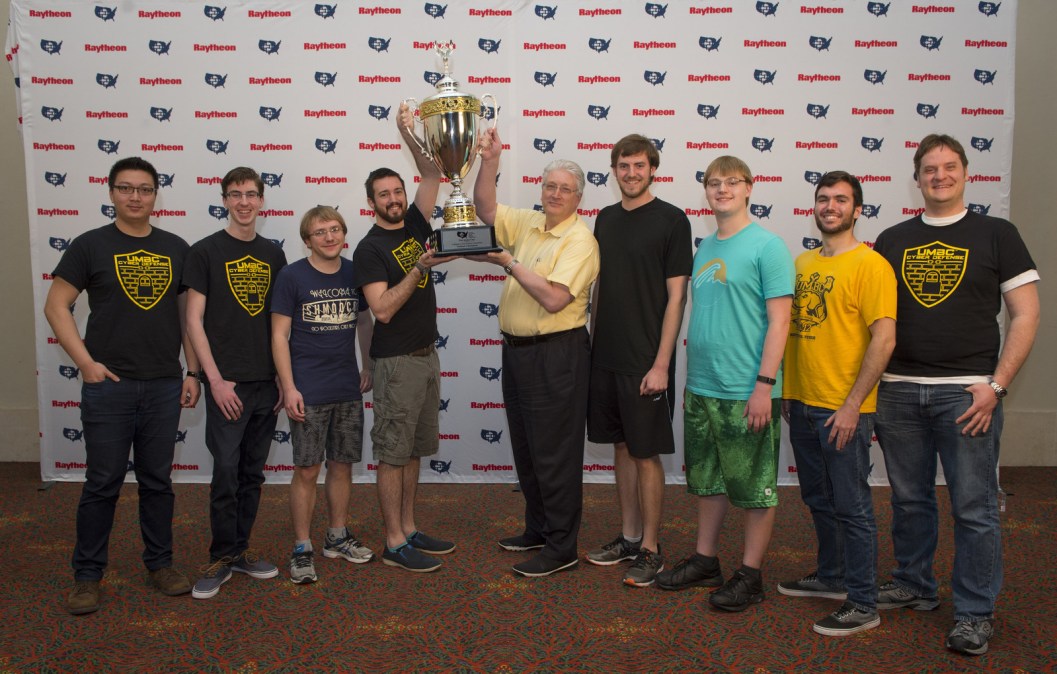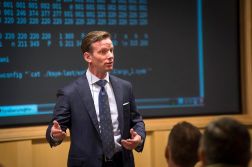University of Maryland, Baltimore County wins national cybersecurity championships

The University of Maryland, Baltimore County won the 2017 National Collegiate Cyber Defense Competition over the weekend, beating out nine other teams in the final round from universities based across the country, including the renown Rochester Institute of Technology.
Students competed against one another last week in San Antonio, Texas, in a constructed digital battlefield where each team was scored on their ability to defend a network infrastructure that was designed to mirror systems currently used in the commercial sector. Competitors were tasked with guarding the model network, which included point-of-sale and inventory technologies, while ensuring that it remained useable and reliable for end users.
An in-house red team of ethical hackers employed by the event’s sponsors played the part of attacker, launching a range of different cyberattacks at the students. Over the last several years, a series of separate challenges have also been added to the competition to specifically test certain skills. Each team succeeds or fails based upon their performance meeting critical tasks, divided into multiple rounds, which are set forth by a cohort of cybersecurity analysts.
More than 230 colleges and universities participated at the regional level of the competition. The San Antonio-based final only gathered the top 10.
“Beginning as early as July, the average student spends 15 hours a week practicing for the regional competitions in March, and many have been involved in competitions since high school,” said Raytheon Blackbird Technologies Director Mike Williams, an event coordinator. “Similar to athletes, these students are practiced and prepared for today’s advanced cyber threats.”
The tournament is backed by the cybersecurity industry’s biggest players, and offers leading brands like Raytheon an introduction to some of the nation’s best young talent.
“Events like NCCDC are not only important for helping students develop the skills they need for future careers, but they also serve as recruiting events for my company, and other top U.S. businesses, to hire the best talent available and continue promoting STEM education,” Williams told CyberScoop. “As a company hiring around the world, these ‘battle tested’ students really stand out, and not just because they have real-world experience.”


